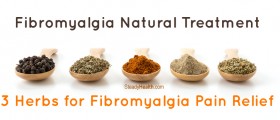
Turmeric (Curcuma longa)
Turmeric is a herb used in Ayurvedic medicine and Asian cuisine. In medicine turmeric is often utilized because of its antiseptic and anti-bacterial qualities. These qualities come from curcumin, active ingredient of turmeric. Burns, cuts and bruises can be treated with turmeric. Experts also see a potential of turmeric for assistance in treatment of cancer, multiple myeloma, arthritis and Alzheimer’s. Traditionally, turmeric is used in Asia for stomach problems, irritable bowel syndrome, digestive problems, regulation of menstrual cycle and other conditions. Applied on skin, turmeric cures eczema and heals the wounds. It is also used in skin creams.
Side effectsTurmeric, as any herb or medicine, can cause side effects. These side effects can occur if turmeric is taken in doses above recommended.
Side effects of turmeric may include: Gastrointestinal problems, including vomiting, diarrhea or constipation - this can occur if you take turmeric for too long. Besides, continuous use of turmeric can lead to intensified acidity, heartburn and stomach or intestinal ulcers. Blood clothing disorders – blood clothing disorders can be possible side effect since turmeric acts as anti-clotting agent. Turmeric limits formation of cloths thus increases the risk of bleeding. Liver conditions - this can also occur because of exaggerated use of turmeric. This was observed in studies on animals while similar studies haven’t been conducted on humans yet. Still, doctors recommend limiting or avoiding turmeric use if you suffer from liver or gallbladder problems. Risk of uterus contractions – this risk is also present because of turmeric consumption. Thereby, turmeric shouldn’t be consumed during pregnancy because it may result in bleeding and miscarriage. On the other hand, turmeric isn’t harmful to breast milk. Complications caused by reaction between turmeric and some medications such as non-steroidal anti-inflammatory drugs and anti-coagulant medications. Skin rash – rash can take place due to allergic reaction, in case you apply turmeric on the skin.Prolonged use of turmeric often reflects in some medical conditions though most of the mentioned side effects haven’t been scientifically proven.
All in all, you should keep away from turmeric if you are pregnant or suffer from blood clotting disorders, acute bilious colic, hepatitis, and gallbladder obstruction.
If you don’t have any of above mentioned conditions, include turmeric in your diet because it can prevent prostate cancer, melanoma and Alzheimer’s disease. It can prevent development of metastases and help in dealing with depression. Turmeric is excellent for liver detoxification and can aid in healing wounds and skin damages.

















Your thoughts on this
Loading...